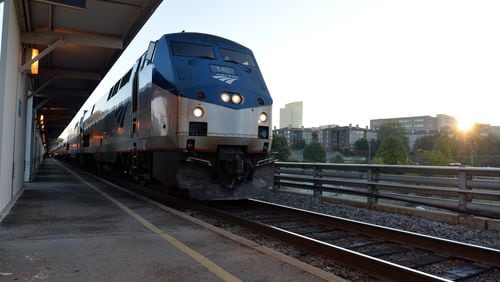Last week, a critical hurdle was cleared in the plan to develop high-speed train service between Richmond, Va., and Raleigh, N.C.
Federal officials approved the Environmental Impact Statement for passenger rail along the 162-mile route, which is one of the last steps before construction can move forward.
How does this impact Atlanta?
Well, the U.S. Department of Transportation views this as a step toward building an entire Southern rail network connecting Atlanta, Charlotte, Raleigh and Richmond.
Planning for the project has been in the works since the early 1990s. U.S. Transportation Secretary Anthony Foxx called high-speed rail "not a luxury but a necessity" as traffic and population continues to build in the Southeast.
Credit: Andria Brooks
Credit: Andria Brooks
It's part of an even larger, long-term vision to eventually connect Atlanta and Washington, D.C.
But it's all still just a pipe dream unless long-term, reliable funding can be secured for the Richmond-to-Raleigh line and the rest of the route. Foxx has said high-speed rail is a priority of his (and President Obama's) administration. However, Congress remains locked in a seemingly endless debate about which transportation priorities should be funded, and how.
Foxx posted the following warning -- seemingly aimed at convincing naysayers in the nation's Capitol and at home of the necessity of the project -- in his Fast Lane blog today:
It took a generation of discussions, planning and designing to get us to where we are today. But we do not have another generation to reach the finish line. High-speed rail in this region is not a luxury; it is a necessity, and the clock is ticking. If we cannot figure out how to build this network soon, it is not hyperbole – it is a fact – that the South is going to be stuck in traffic for a very long time.
About the Author







